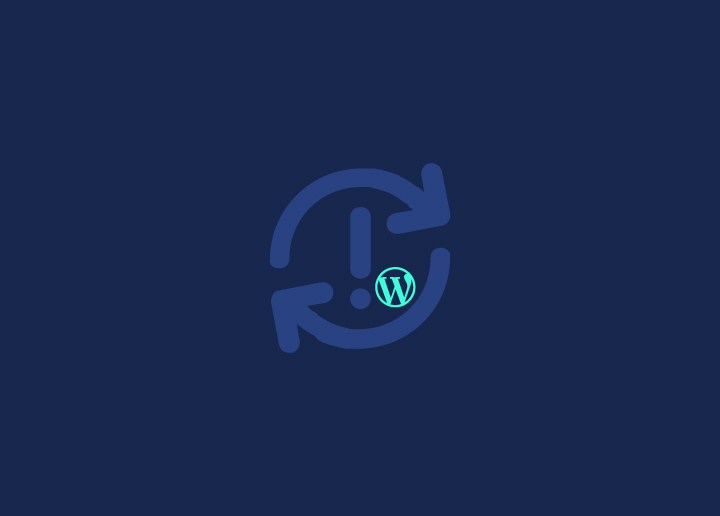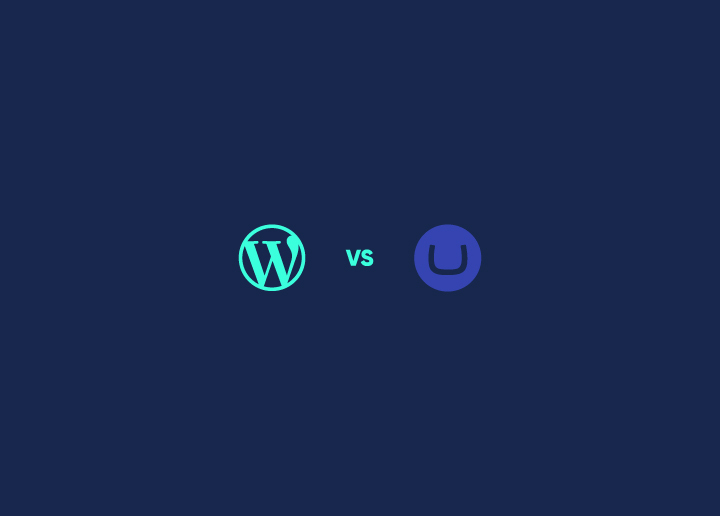Are you struggling to improve your WordPress website’s search engine rankings? You’re not alone. Standing out in search results can be daunting as there are millions of websites already competing for your target keywords. But fear not! With our comprehensive guide to optimal SEO on WordPress in 2024, you’ll be equipped with the knowledge and tools you need to improve your site’s rankings and attract more organic traffic.
This article explains the basics of WordPress SEO, lists top SEO plugins, and includes tips on optimizing your content for better rankings. We’ll also cover the technical aspects of SEO, such as site speed optimization and mobile-friendliness. Plus, we’ll discuss how to monitor and measure your SEO efforts.
Contents
ToggleUnderstanding the Basics of WordPress SEO
WordPress is widely regarded as a highly SEO-friendly platform thanks to its extensive range of SEO plugins and customizable features. However, achieving the best WordPress SEO results requires a solid understanding of the strategies involved.
At its core, search engine optimization (SEO) is the process of fine-tuning your website to improve its visibility in SERPs. The primary components of WordPress SEO are:
- On-page factors
- Off-page factors
- Keyword research
- Site structure
By mastering these elements and implementing best white-hat SEO practices, you’ll be well on your way to boosting your website’s performance in search engines and attracting more visitors.

Also, the ultimate goal of SEO is to cater to users’ search needs. This means:
- Creating high-quality content that addresses search intent or user intent.
- Optimizing your site architecture for easy navigation.
- Ensuring your site is visible to search engines for indexing. You can do this by unchecking the ‘Discourage search engines from indexing this site’ box in the Settings » Reading page.
Read: Best WordPress SEO Agencies
On-Page SEO Factors
On-page SEO factors are instrumental in aiding search engines to discern your content’s topic and gauge its relevance to users’ search queries. Key on-page factors include content quality, keyword usage, and meta tags.
Crafting high-quality content is key to offering informative and engaging experiences to users. This involves crafting well-written, error-free, relevant content that resonates with your target audience. Meanwhile, keyword usage helps search engines comprehend the subject matter of your page, making it essential to incorporate relevant keywords strategically throughout your content.
Meta tags, such as meta titles and descriptions, are another essential aspect of on-page SEO. These elements aid search engines in understanding the content of your page and displaying it in search engine snippets and browser tabs. Using SEO plugins like Yoast SEO can help you optimize your titles and meta descriptions, ensuring your content is primed for search engine success.
Off-Page SEO Factors
Off-page SEO factors are elements that occur outside of your website but still impact its performance in search engine results. These factors include backlinks, social signals, and domain authority.
- Backlinks from high-authority websites are vital for enhancing your website’s authority and elevating its rankings in the search engine results pages (SERPs). Backlinks demonstrate to search engines that your content is valuable and worth promoting.
- Social signals (likes, shares, comments) on social media platforms can also positively impact your website’s visibility and engagement, resulting in more traffic and followers.
- Domain authority is another important metric influencing your site’s rankings and visibility in search engines.
Concentrating on both on-page and off-page SEO factors can help you optimize your WordPress site for enhanced search engine performance.
Read: What Is TrustRank And How Does It Work
Keyword Research
Keyword research, a vital part of any successful SEO strategy, assists you in identifying the most pertinent and valuable target keywords for your content. By understanding your target audience’s search terms and phrases, you can optimize your content to cater to their needs and rank higher in search engine results.
One of the most effective ways to identify relevant keywords is by examining the keywords your competitors rank for. By analyzing their content and strategies, you can uncover opportunities to target similar keywords and improve your own search engine rankings.
After selecting your ideal target keywords, you must optimize your content accordingly. This involves strategically incorporating the keywords throughout your content – in the title, meta, headings, and body text. Plus, crafting compelling meta descriptions that improve click-through-rates.
Related: Best Keyword Research Tools (Paid & Free)
Site Structure
A well-structured site benefits both user experience and search engine crawling. A clear and organized site architecture enables users to navigate your website quickly and helps search engines understand the hierarchy of your pages.
To ensure a well-structured site, consider the following:
- Organize similar pages into subfolders of the URL architecture.
- Adjust the page to choose the desired “Parent Page” in the “Page Attributes” section.
- Optimize images by including descriptive titles and alt tags to improve site performance and search engine rankings.
It’s also essential to effectively manage updates for plugins and themes in WordPress to maintain an optimized site structure. Be sure to regularly visit the respective sections in the WordPress dashboard or WP-admin (Plugins > Installed Plugins and Appearance > Themes) to keep your site up-to-date and running smoothly.
Need Help Optimizing Your WordPress Website?
We are experts when it comes to WordPress website optimization for users and search engines.
Choosing the Right SEO Plugins for Your WordPress Site
With so many SEO plugins available, choosing the right one for your WordPress site can be daunting. In this section, we’ll explore some of the best WordPress SEO plugins, including:
- Yoast SEO
- Rank Math
- All in One SEO Pack
- SEOPress
These WordPress SEO plugins offer a variety of features and capabilities designed to help you optimize your website for search engine visibility. From managing titles and meta descriptions to generating XML sitemaps and integrating with social media platforms, these plugins can help streamline your SEO efforts and improve your site’s performance in search results.
To pick the best plugin catering to your specific needs, consider factors like ease of use, compatibility with your theme and other plugins, along with the support and documentation provided.
Yoast SEO Plugin
A widely used WordPress plugin, Yoast SEO offers free and premium versions. With the Yoast SEO plugin, you can enjoy a range of features, including:
- Technical optimization
- Cornerstone content
- Structured data
- Front-end SEO inspector
Yoast SEO offers advanced features, including generating XML sitemaps, customizable title and meta description templates, and Schema.org structured data integration. The plugin also provides add-ons to further optimize your site for local audiences, improve video loading speeds, enhance visibility in Google, and more.
With its user-friendly interface, extensive documentation, and powerful features, Yoast SEO is a solid choice for anyone looking to improve their SEO efforts.
Rank Math
Rank Math is another popular WordPress SEO plugin that offers a powerful set of features and an easy-to-use interface. With its advanced bulk optimization capability, Rank Math allows you to conveniently optimize many posts simultaneously.
One of its standout features is the ability to optimize content for up to five keywords. This enables you to target a broader range of search queries, improving your chances of ranking higher in search results. Additionally, Rank Math offers a seamless transition from other popular SEO plugins, making switching and importing your existing SEO settings easy.
Read: Rank Math vs Yoast: Which Is The Best SEO Plugin
All in One SEO Pack
The All in One SEO Pack is a comprehensive plugin that has been a favorite among WordPress users since its launch in 2007. With over 3 million users, this plugin offers a variety of powerful features to help you optimize your website for search engines.
Some of the standout features of the All in One SEO Pack include:
- Automatic meta tag generation.
- Google Analytics integration.
- Social media platform integration.
- Automatic creation of an XML sitemap to help search engines crawl and index your site more effectively.
SEOPress WordPress SEO Plugin
SEOPress is a lightweight yet powerful WordPress SEO plugin offering free and pro versions. With features such as managing titles, open graphs, and Twitter (now X) cards and generating XML sitemaps, SEOPress provides comprehensive tools to help you optimize your website for search engine success.
In addition to its core features, SEOPress offers a variety of advanced options, such as importing & exporting SEO settings, managing redirects, and setting up custom schema markup for your site. It is also compatible with other WordPress plugins and themes and has an easy-to-use interface.
Further reading: Your 6-Point Website SEO Checklist
Optimizing Your Content for Better Rankings
Having now grasped the basics of WordPress SEO and chosen the appropriate plugin for your site, the next step is to concentrate on content optimization for improved search engine rankings. In this section, we’ll discuss strategies for:
- Creating high-quality content.
- Using focus keywords.
- Crafting compelling titles and meta descriptions.
- Implementing internal and external linking.
By following these best practices, you’ll be better equipped to create content for your target audience, which also helps improve your site’s ranking and overall visibility.
Creating High-Quality Content
High-quality content forms the bedrock of a successful SEO strategy. Focusing on precision, relevance, and engagement is crucial to creating content that resonates with your target audience and ranks well in search results.
To achieve this, here are some tips:
- Research your topics thoroughly.
- Craft compelling titles and meta descriptions.
- Incorporate focus keywords strategically throughout your content.
- Incorporate visuals.
- Use a conversational writing style to make your content 10x more engaging and accessible to readers.
Remember, creating high-quality, evergreen content is about providing value to your readers and addressing their search intent. By focusing on these content tips, you can achieve SEO success and attract more organic traffic.
Using Focus Keywords
Focus keywords, which help search engines grasp your content’s topic, should be strategically incorporated throughout your content.
To optimize your content for focus keywords, follow these steps:
- Include the focus keyword in the title.
- Use the focus keyword in headings.
- Incorporate the focus keyword in the body text of your content.
- Use variations of the focus keyword throughout your content.
By optimizing your content for focus keywords, you’ll not only improve your site’s search engine rankings but also ensure your content is more relevant and engaging for your target audience.
Crafting Compelling Titles and Meta Descriptions
Since they are the first thing a user sees on a search result, compelling titles and meta descriptions are crucial to maximizing clicks. To create compelling titles and meta descriptions, it’s essential to include relevant keywords, keep them concise and descriptive, and use actionable language. By crafting titles and meta descriptions that accurately convey the content of your page, you’ll be better positioned to drive more traffic and improve your site’s overall search engine performance.
Implementing Internal and External Linking
Implementing internal and external linking is vital in enhancing user experience and bolstering your site’s SEO performance. Internal linking helps guide users through your site by providing additional information and context. Whereas, external linking can help build relationships with other websites and improve your site’s overall authority.
To optimize your content for internal and external linking, consider incorporating relevant links to other pages on your site. Plus, add reputable external sources that provide additional information or context.
Want To Create Content That Ranks In The Search Result?
Our content specialists have mastered the art of crafting engaging, SEO-friendly content. Check out our content creation services.
Technical SEO for WordPress Websites
Besides content optimization, focusing on technical SEO is important for your WordPress website to perform optimally. In this section, we’ll explore the importance of site speed, mobile-friendliness, and structured data in improving your site’s search engine rankings.
Improving Site Speed
Site speed is a critical factor influencing user experience and search engine rankings, with slow-loading websites often suffering from reduced visibility and higher bounce rates. To enhance your site’s page speed and load time, consider implementing the following strategies:
- Image optimization
- Code minification
- Caching
- Utilizing a content delivery network (CDN)
Improving your site’s speed benefits your users by providing a smoother browsing experience. Plus, it helps enhance search engine rankings, making it a crucial aspect of any successful SEO strategy.
Read: Best Website Speed Test Tools
Ensuring Mobile-Friendliness
With the rise of users accessing websites on mobile devices, ensuring your WordPress website is mobile-friendly is more important than ever. A mobile-friendly site is optimized to provide a good user experience and perform well on smartphones and tablets.
To ensure your website is mobile-friendly, consider employing a responsive design. Also, optimize images for mobile devices and utilize a mobile-friendly navigation menu. Additionally, test your website across devices & browsers to ensure it functions and appears correctly.
By focusing on mobile-friendliness, you can reach a wider audience and improve your site’s search engine rankings, ultimately driving more traffic and engagement.
Read: Difference Between A Mobile Site And A Responsive Site
Implementing Structured Data
Structured data is organized and formatted in a standardized way, allowing search engines to easily search and interpret it. By implementing structured data on your WordPress website, you help search engines find, crawl & index your content and improve its visibility.
To implement structured data, you’ll need to add the relevant code to your web pages, ensuring it adheres to schema.org guidelines and accurately describes the content of your page. By utilizing structured data, you’ll enhance your site’s search engine rankings and create rich snippets that make your content more prominent in SERPs.
Read: How Search Engine Works – Crawling, Indexing, & Ranking
Monitoring and Measuring Your SEO Efforts
To ascertain if your SEO efforts are producing the desired results, monitoring and measuring your site’s performance using Google Search Console, Google Analytics, and keyword ranking tools is essential. These tools can provide insights into your site’s visibility in search engine results, user behavior, and traffic sources.
By regularly monitoring your site’s performance and adjusting your SEO strategies accordingly, you’ll be better positioned to achieve long-term success.
Google Search Console
Google Search Console enables website owners to gain insight into their website’s visibility in search engine results. By submitting an XML sitemap to Google Search Console, you can help search engines crawl and index your site more effectively, improving your site’s rankings.
Google Search Console also provides reports & SEO data, which can help you understand how your pages appear in search results and the search terms used to find your website. Regularly monitoring your site’s performance can help you identify areas that need improvement so you can optimize your site accordingly.
Related: Google Search Console Guide
Google Analytics
Google Analytics monitors and reports website activity. By configuring Google Analytics and incorporating the tracking code into your WordPress website, you can better understand your site’s traffic sources, user behavior, and overall performance.
Using Google Analytics, you can:
- Identify trends and patterns in user behavior.
- Assess the effectiveness of your SEO strategies.
- Make data-driven decisions to improve your website’s performance and search engine rankings.
Related: Session In Google Analytics- What Do You Need To know
Keyword Ranking Tools
Keyword ranking tools are essential for monitoring your site’s position in search engine results for specific keywords. By tracking your keyword rankings over time, you can assess your SEO campaign and identify potential opportunities for improvement.
Popular keyword ranking tools that can provide valuable insights into your site’s keyword performance include:
- SEMrush
- Ahrefs
- Moz
- KWFinder
These tools help optimize your content for higher search engine rankings.
Related: Top 5 SEO Tools For Your Website
Local SEO for WordPress Websites
For businesses aiming for a local audience, executing local SEO strategies is vital to draw more customers and boost visibility in local search results. In this section, we’ll discuss the importance of setting up Google My Business, optimizing for local keywords, and utilizing local SEO plugins. By focusing on local SEO, you can differentiate your business from competitors, improve your rankings, and drive more website traffic and engagement from local users.
Setting Up Google My Business (GMB)
Google My Business is a free service that enables businesses to:
- Manage their online presence across Google, including Search and Maps.
- Increase their visibility in local search results.
- Engage with customers more effectively.
- Manage customer reviews.
To optimize your business profile for local SEO, ensure that your business information is accurate and up-to-date. This includes:
- Your business name
- Address
- Phone number
- Website
- Hours of operation
- A brief description of your business
You can attract more local customers by setting up a GMB account and optimizing your profile. Plus, improve your search engine rankings in local search results. Additionally, consider adding photos and videos that showcase your business. This will help establish trust with potential customers.
Read: Complete Guide To White-Label SEO
Optimizing for Local Keywords
Optimizing for local keywords is essential for businesses targeting a local audience. This helps ensure your content is relevant for users searching for businesses in specific locations. To optimize content for local keywords, include the city, state, or region. Use local keywords in titles and meta descriptions, and create content relevant to the local area. Additionally, consider setting up a Google My Business listing and using local SEO plugins to optimize your site’s local search.
Utilizing Local SEO Plugins
Local SEO plugins can help enhance your site’s local search optimization by providing tools and features designed specifically for businesses targeting a local audience. Popular local SEO plugins like Yoast Local SEO, RankMath SEO, and SEOPress can help you manage titles and meta descriptions, create local content, and set up Google My Business.
Further reading: What Are The Local SEO Best Practices
Summary
Optimizing your WordPress website for search engine success requires a comprehensive approach that includes the following:
- Mastering the fundamentals of WordPress SEO, such as on-page and off-page factors, keyword research, and site structure.
- Selecting an appropriate SEO plugin for your needs.
- Optimizing content for better rankings by creating high-quality content with focus keywords.
- Implementing technical SEO practices to improve website performance in search engine results.
- Utilizing local strategies to maximize visibility from local users.
- Monitoring and measuring your SEO efforts.
By following the tips and best practices outlined in this optimal SEO on WordPress guide, you’ll be well on your way to improving your site’s search engine rankings. It will also help you attract more organic traffic, ultimately achieving greater success online.
WordPress SEO Frequently Asked Questions
Yes, you can do SEO on WordPress. It’s widely considered the best CMS for SEO as it allows you to structure, manage, and publish content in an SEO-friendly way.
WordPress SEO is a combination of on-page and off-page factors, keyword research, and site structure.
Starting with SEO in WordPress requires installing a WordPress SEO plugin and conducting extensive keyword research. Next, create SEO-friendly content, optimize meta titles & descriptions, use heading tags (H-tags), implement an internal linking strategy, and include reliable external links.
Yoast SEO is one of the most popular and best free WordPress SEO plugins available, with over 5 million active installations and 25,000 five-star reviews on WordPress.org. It scans posts and pages for readability and SEO issues, displaying “good results,” problems, and potential improvements at the bottom of the page.
Yoast SEO is the best SEO plugin for WordPress, followed by All in One SEO, Rank Math, SEOPress, and SEO Squirrly.















